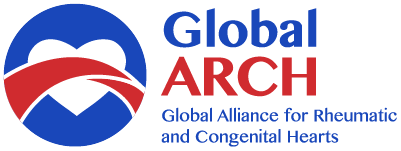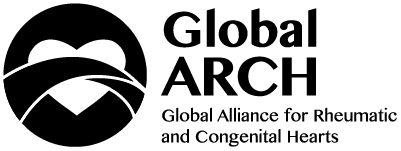Call to Action
“There can be no keener revelation of a society’s soul than the way in which it treats its children” Nelson Mandela 1995.
We, the pediatric and adult congenital cardiac community from around the world, gathered here in Washington, D.C., United States of America from August 27 to September 1, 2023, to share and learn from each other during the 8th World Congress of Pediatric Cardiology and Cardiac Surgery. We issue an urgent call for action by all governments, all health and development agencies, and the world research and academic community to protect and promote the health of all people with pediatric and congenital heart diseases. To that end, we call to action:
WASHINGTON, D.C. CALL TO ACTION ON ADDRESSING THE GLOBAL BURDEN OF PEDIATRIC AND CONGENITAL HEART DISEASES
Background
Across the world children with heart disease suffer appalling and shameful neglect. The tremendous advances made in reducing childhood mortality from pediatric and congenital heart diseases are confined to high-income countries (HICs) leaving low- and middle- income countries (LMICs) far behind. Of every 100 children born around the world, one will have a malformation of the heart, congenital heart disease (CHD). Nearly half of the children with CHD will need a medical intervention in their lifetime, and a quarter of them will need it in the first year of life in order to survive.
Up to 90% of those born with CHD in LMICs do not have access to cardiac care, and they continue to suffer the high levels of death and disability HICs began to overcome more than fifty years ago. In HICs, medical advances increased childhood survival from an estimated 10% in 1950 to over 90% by 1990, and individuals with even the most complex heart defects are now reaching their fifth and sixth decade of life. In contrast, children born with CHD in LMICs face a vastly different prognosis. CHD is quickly becoming a leading cause of mortality in neonates and children in LMICs, and for those who survive, it can be a life-limiting condition if left untreated.
This problem is not limited to CHD. Rheumatic heart disease (RHD), a preventable non-communicable disease, is the most common acquired heart disease among children and young adults in Africa and affects 1.5 – 3% of school-aged children. More than 10% of affected individuals die within 12 months of diagnosis; RHD accounts for a substantial proportion of maternal mortality and significant economic burden. In 2010 it was estimated to be US$ 791 million – $2.37 billion.
Other heart conditions acquired in childhood[i] also contribute significantly to the burden of pediatric and congenital heart disease and all have less favorable prognoses in LMICs. Whether or not these children survive and grow to reach their full human potential depends largely on birth location and access to heart care treatment throughout their lifetime. There is a dire need for more comprehensive treatment facilities and programs to prevent the deaths of these children, and to provide them with ongoing care as they enter adulthood.
Accelerating progress to address the burden of pediatric and congenital heart disease globally is in line with the 2030 Global Agenda for Sustainable Development (SDG3). We believe that the existing gross inequity in the health status of people with pediatric and congenital heart disease, particularly in LMICs, is politically, socially, and economically unacceptable, and is therefore of concern to all countries. Long-term investment into the lifelong well-being of children should be a guiding value for investments in health and a key priority.
We hereby call upon the global community in general, and every responsible government, for an effective policy response supported by adequate financial investment to address the needs of all with pediatric and congenital heart diseases. To this end, we recommend to governments, multilateral organizations (the World Health Organization, the United Nations Children’s Fund, the World Bank and others), funders, professional societies, research and teaching institutions, civil society, and the private sector, the following key actions:
Increase capacity to care for people with pediatric and congenital heart diseases
2030 Goal: The timely diagnosis, treatment and lifelong care of pediatric and congenital heart disease will be integrated into all health system strengthening and surgical scale-up plans.
①Domestic and global investments to increase capacity for pediatric and congenital cardiac care at secondary and tertiary hospitals.
②Harness private sector capacity and innovations in areas of digital, primary care and diagnostics, task shifting if available.
③Support of local referral networks by ministries of health and regional academic institutions to improve early diagnosis, surveillance, and lifelong care of heart disease, and to develop diagnostic and treatment guidelines for low-resource settings.
④Universities, NGOs (Non-Governmental Organizations) and teaching hospitals should invest in multi-year partnerships focusing on leadership, infrastructure development and training to increase the technical capacity and financial sustainability of local hospitals.
Build the pediatric and congenital cardiac workforce[ii]
2030 Goal: Health professionals will be able to recognize the basic signs and symptoms of congenital and rheumatic heart disease. Accredited pediatric cardiac training programs will be available in all countries.
Ministries of health, finance, and education, and regional professional bodies collaboration to:
①Evaluate workforce needs in pediatric and congenital cardiac care.
②Develop accredited pediatric and congenital cardiac training and education centers and programs that include developing the technical and leadership capacity of specialist pediatric cardiac nurses, physicians, pharmacists, perfusionists, and respiratory therapists, and others.
③Develop pediatric and congenital cardiac workforce strengthening plans with appropriate recruitment and incentivization to minimize attrition, promote career satisfaction and skills retention in the nursing and pediatric cardiac care professions.
④Support the careers of existing pediatric and congenital cardiac care professionals and build mentorship programs and viable career path options for the next generation.
Close the data gap
2030 Goal: Data on pediatric and congenital heart diseases will be collected in national health surveys and included in burden of disease and cause of child death statistics.
①Update the burden of disease data on pediatric and congenital heart disease with a particular focus on LMICs. Congenital heart disease should be included in all national child health, surgical, burden of disease and cause of death surveys and reported to national health ministries and international organizations such as the World Health Organization and the World Bank.
②Research and advocacy on ending preventable child deaths must include pediatric and congenital heart disease as a significant contributor.
③Publication by pediatric and congenital cardiac care providers in LMICs of outcomes research, cost analyses, and other topics relevant to low-resource settings, especially to inform health policy.
④Prioritize the application of cost-effective technologies and quality improvement strategies that can reduce costs and improve outcomes for children with heart disease in low-resource settings.
Finance pediatric and congenital cardiac care
2030 Goal: Care for pediatric and congenital heart disease will be included in benefits packages in universal health coverage and social protection platforms, protecting patients from catastrophic expenses related to their care.
Ministries of health, finance, and education, and regional professional body collaboration to:
①Mobilize increased funding at domestic and international levels in order to achieve scaling of cardiac surgical and anesthesia care in LMICs.
②Provide support to individuals and families of children with heart disease who experience indirect expenses related to accessing and sustaining care, particularly those at risk of poverty.
③Track and report financial data at hospitals in LMICs with functional pediatric cardiac care services using standardized metrics such that analyses can be made on the cost of scaling up care for children with heart disease.
④Develop and strengthen cross cover and mutually beneficial funding relationships between public and private health providers.
⑤Mobilize funding for LMIC-focused research and data collection.
[i] Those include conditions such as myocarditis, cardiomyopathy and Kawasaki disease.
[ii] These recommendations for training of pediatric cardiac care staff align with the vision and goals of the World Health Organization’s Call to Action: Addressing The 18 million Health Worker Shortfall, and the Global Strategy on Human Resources for Health: Workforce 2030.
Translations made by Global ARCH.




